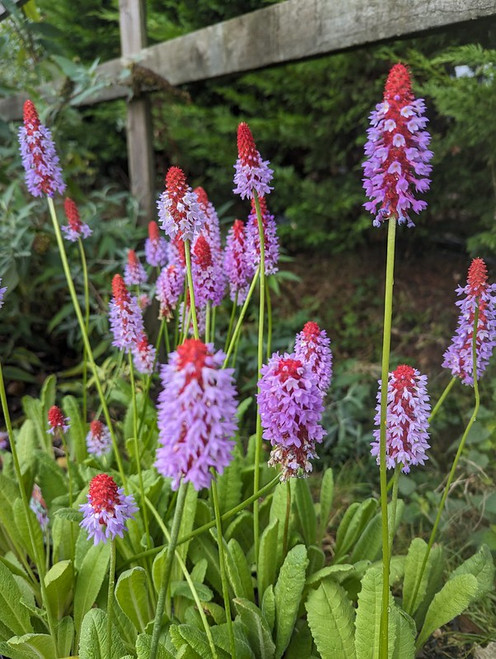Plant Overview
ONE EACH OF OUR NATIVE PERENNIAL PRIMROSE, COWSLIP AND OXLIP PLANTS. EACH IN A 9x10cm POT.
Primrose
The true Primrose. Not to be confused with the cultivated varieties of primrose available, this is the native version found in hedgerows and woods across the country. Plant under deciduous (non-evergreen) trees and shrubs, along hedgerows, in the border or in pots.
Pale lemon flowers, with a delicate scent, which were traditionally crystallised at Easter time.
Most 'primroses' sold by garden centres are hybrids. This is the true British 'common' primrose. Now sadly not as common as it once was. Fully hardy and a joy as it's among the first colour of the year. Of great benefit to pollinators on sunny spring days when little else is available to them.
In some regions of Britain they are used as one of ancient woodland indicator species.
Despite not belonging to the rose family, the name Primrose is thought to derive from the Latin for 'first' (prima) 'rose' (rosa).
Height: 6"
Common name(s): Primrose, Easter Rose, Lent Rose, May-flooer, May Spink, Simmerin
Cowslip
A favourite British native of the hedgerows and meadows, now sadly largely in decline across the country. Fragrant lemon-yellow flowers in spring.
Flowers from March to May.
Height: 18cm
Common names: Cowslip; Paigle; Herb Peter; Keyflower; Palseywort; St Peter's Wort; Key of Heaven; Our Lady's Keys; Fairy Cups; Bunch of Keys; Cooslop; Cow Slap; Milk Maidens; Tisty-Tosty; Palsy Wort; St Peter's Herb; St Peter's Keys.
The common name cowslip may derive from the old English for cow dung, probably because the plant was often found growing amongst the manure in cow pastures. An alternative derivation simply refers to slippery or boggy ground; again, a typical habitat for this plant.
The cowslip is frequently found on more open ground than the primrose, including open fields, meadows, coastal dunes and clifftops. The plant suffered a decline due to changing agricultural practices throughout the 1970s and 1980s in Britain. It may therefore be rare locally, though where found it may be abundant.
Cowslips and Primroses are the food of the Duke of Burgundy Fritillary butterfly, which lays its eggs in small numbers under the plants leaves.
Oxlip
The Oxslip is a rare British native. Similar (and related) to the more widely available cowslip, but with large, paler flowers which smell of apricots. Flowers in spring and early summer.
Oxlip is a nationally scarce species and is classed as near threatened in Britain.
Height: 18cm
Common name(s): True Oxlip, Bardfield Oxlip, Paigle.
Traditionally found in damp woodlands and meadows in Britain, this is one of the wildflowers now sadly in decline.
Oxlips were traditionally used to treat coughs and rheumatism.
You are buying one each of the above three plants.
Please note that Primulas are perennial and die back in summer and start to grow again in late autumn or late winter. In the wild they usually die completely back to ground level. In pots some or all leaves may remain, but they are usually dormant except in spring and early summer.










